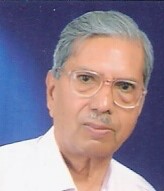
I C Srivastava was born in 1943. A student of English Literature, he joined the Indian Administrative Service in 1966. During his 37 years tenure, he was Collector/ District Magistrate of three districts, served as the Chairman, Board of Revenue, Rajasthan, and retired as Chairman, Rajasthan State Mines and Minerals Corporation. He has authored several books in Hindi and English. Nowadays, he is associated with various social and cultural activities in Jaipur.
It was a pleasant morning with the bright sun filtering through the windows of my spacious office. The date was 25th November 1971. At 11 AM, I was settling into my daily work routine as the Collector of Barmer District in Rajasthan when the telephone rang. It was the Base Commander of Utterlai, the airport on the border with Pakistan. He spoke almost in whispers.
"The VVIP is returning from the border area in 20 minutes. You and the Superintendent of Police have been called to meet her. Please tell the SP and start immediately. Sorry, we should have mentioned this earlier."
His urgent voice did little to put me at ease.
We rushed to the airport and reached it in the nick of time.
With a pulsating heart and an anxious mind, we saw the Helicopter land. The VVIP exchanged a few words of thanks with Air Force officers and started walking briskly towards us. After formal introductions and greetings, the Union Minister of State for Home, who was accompanying the VVIP, beckoned me to walk with her towards the IAF plane waiting to fly them back to Delhi. My conversation with the VIP ran somewhat as follows: